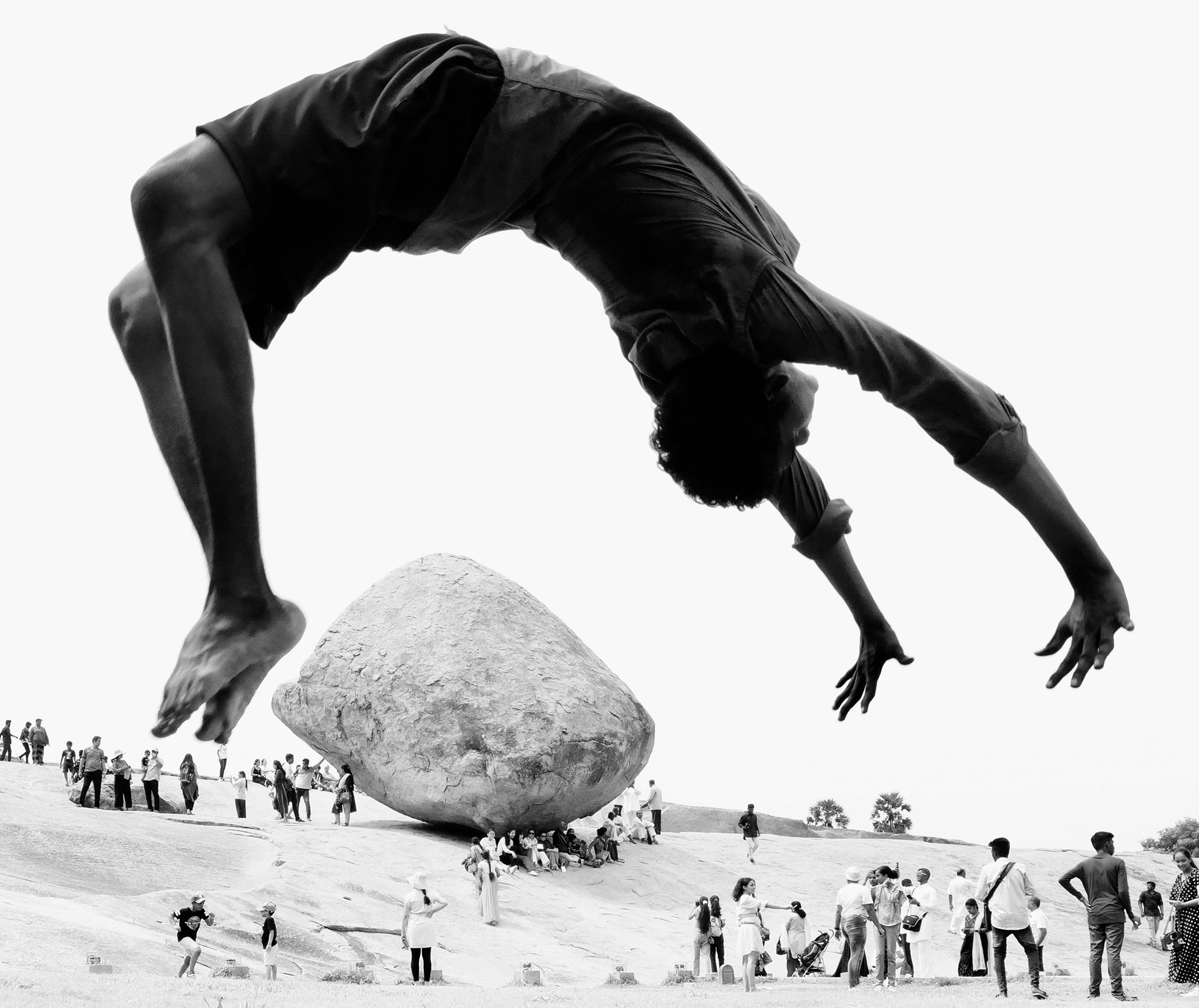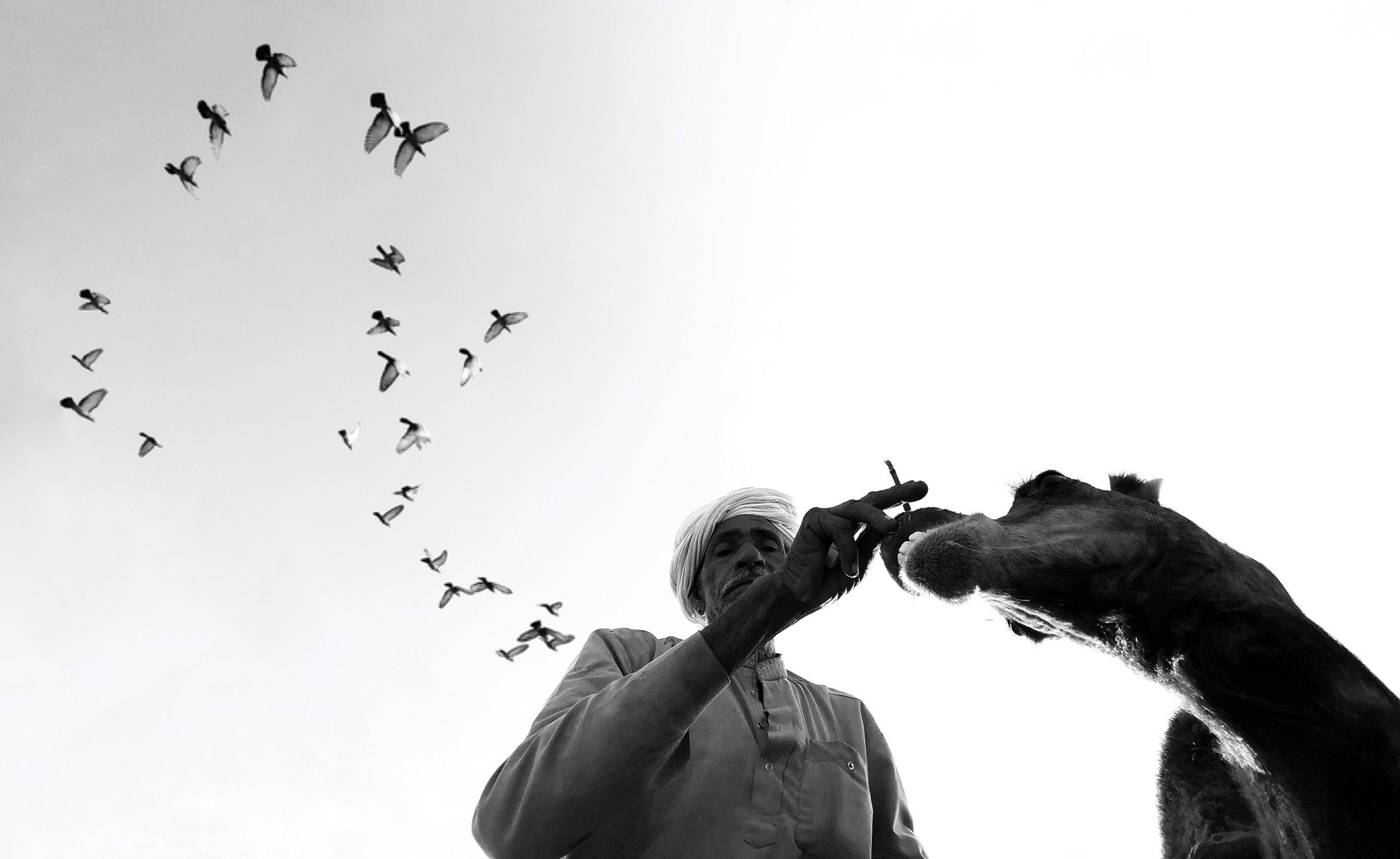Apple Inc. & British Journal of Photography by Dimpy Bhalotia with Niccolò Lapo Latini
DIMPY BHALOTIA Q/A
How important are awards in your career as a photographer?
The recognitions helped me reach a wider audience, extend my message, and raise awareness about the significance of photography. It fuelled my determination to create thought-provoking photographs, bridging the gap in art education and inspiring viewers with the beauty of artistic expression. All the accolades amplified my voice, connected me with more viewers, and fostered a deeper appreciation for art. I'm grateful for the opportunity to share my creative perspective and inspire others to embrace their own artistic expressions.
What is your most significant award or the one you feel most connected to?
They all have been a stepping stone in my artistic journey, allowing me to profoundly impact people's thoughts and actions through my art. It provided a platform to spread love, hope, and freedom in a world yearning for these virtues.
Tell us about your experience with the Bri2sh Journal: What did that victory mean to you, and what is the story behind the winning photo?
The British Journal Award gave me recognition for my unique perspective as a photographer. It motivated me to further hone my skills and concentrate on photographing meaningful moments. In photograph Flying Boys, the young boys were jumping off a man-made cliff into the Ganges River to beat the hot weather during the summer. It characterises the day-to-day activities of the young boys living in Banaras, India. They are the symbol of fearlessness and freedom.
How did your journey with Apple begin?
My journey with Apple begins in 2018 when they contacted me to feature my photograph on their Official Instagram account. Since then, I've had the privilege of collaborating with them on many other campaigns. One of these campaigns that I was part of was for their new look for their Lock Screen. I absolutely loved it!
What inspired your latest campaign? What was it like working on it?
I am working on the latest campaign, and I have signed the NDA for it. Hence, I can’t disclose. But before this I did a campaign for Oppo Europe. It was a great experience since they gave me freedom to navigate my own style of photography through their product.
What are the differences between shooting an editorial or personal project, which may be more artistic, and a campaign, which is a commercial project? What do you prefer?
I truly enjoy all types of projects. The personal project that I am currently working on is far more intricate since there is no deadline. Hence, I am able to research deeply and photograph it very intricately. But overall, all of them have their own charm and I thoroughly enjoy all of it.
What are your goals for the near future?
I aim to convey the beauty and freedom of everyday life through my work, now and in the future. I seek to evoke a sense of empathy and understanding for the people and places that I photograph. Celebrating love, hope and freedom of the world around us. I believe the style of portfolio that I have crafted with unique moments has built a strong trust in my audience, that what I will deliver will bring emotions of emancipation. They will feel the liberation of using their free will. They will enjoy the photograph emitting energies of love and light.
NICCOLÒ LAPO LATINI Q/A
You have won awards as a project manager and project director in New York, London and most recently in Vienna, both individually and as part of a team. Do you believe that awards are an important aspect of your profession and industry?
Undoubtedly, awards bring pleasure and satisfaction, especially when they are bestowed upon the project where the entire team is involved and recognized. Of course, our primary goal remains the project itself, whether it's editorial or commercial. The objective is its success, and success is linked to the complexity of daily tasks.
If you had to choose between tackling a commercial production or an editorial one, which of the two comes with more challenges?
All projects require very high levels of attention and specific care. Certainly, commercial production comes with many logistical difficulties and critical points, especially related to economic and time constraints, which an editorial project does not have. However, it represents an exciting and fascinating journey that fosters cohesion and unity among professionals in the process.
Interview by Constantin Bernard







